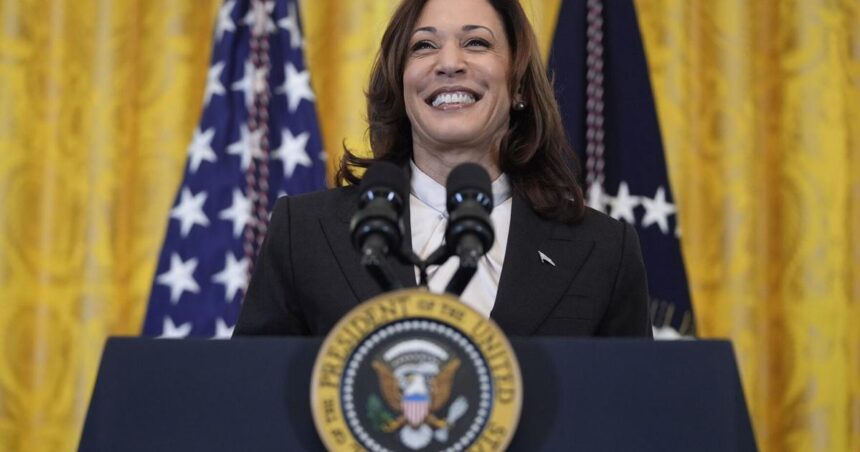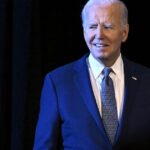WASHINGTON (AP) — Kamala Harris, who has already broken barriers, could potentially break several more after President Joe Biden unexpectedly ended his reelection bid and endorsed her.
Biden, following a disappointing debate performance, announced on Sunday that he would not seek a second term due to concerns about his age.
Harris, as the first woman, Black person, or person of South Asian descent to hold the office of vice president, stands to make history once more if she becomes the Democratic nominee and defeats Republican candidate Donald Trump in November, becoming the first woman president.
Biden referred to choosing Harris as his running mate as “the best decision I’ve made” and endorsed her as his successor.
“Democrats — it’s time to come together and beat Trump,” he wrote on X, the social media platform formerly known as Twitter. “Let’s do this.”
People are also reading…
Harris praised Biden’s decision to step aside as a “selfless and patriotic act,” commending his dedication to the American people and the country.
“I am honored to have the President’s endorsement and my intention is to earn and win this nomination,” Harris said. “Over the past year, I have traveled across the country, talking with Americans about the clear choice in this momentous election.”
Following Biden’s lead, prominent Democrats quickly rallied around Harris on Sunday. Nonetheless, her nomination is not guaranteed, with suggestions that the party should hold a rapid “mini primary” to consider other candidates before the convention in Chicago next month.
A recent poll from the AP-NORC Center for Public Affairs Research shows that about 6 in 10 Democrats believe Harris would do well in the top slot. Approximately 2 in 10 Democrats are uncertain, and another 2 in 10 are not in favor.
The poll indicates that approximately 4 in 10 U.S. adults have a favorable opinion of Harris, while about half have an unfavorable opinion.
A former prosecutor and U.S. senator from California, Harris’ bid for the 2020 Democratic presidential nomination ended before any primary votes were cast. She later became Biden’s running mate, and although she initially faced challenges as vice president, her advocacy for abortion rights and outreach to younger and minority voters have boosted her standing.
Harris’ consistent performance after Biden’s debate misstep has solidified her support among Democrats in recent weeks.
Prior to Biden’s endorsement, Harris was already a frontrunner to succeed him on the ticket, benefitting from her foreign policy experience and national recognition, giving her an advantage over potential challengers.
Harris now faces the challenge of avoiding the fate of past vice presidents who have won the Democratic nomination but failed to secure the presidency.
She has been under intense scrutiny due to Biden’s age, as she could potentially succeed him if the need arises, despite assurances from both of their capabilities.
Harris, born in Oakland, California, in 1964, into a family of civil rights activists, has a background that has shaped her into the trailblazer she is today.
Exposed to the social justice movements of her time from an early age, Harris’ journey from Berkeley to becoming a prominent figure in American politics is a testament to her resilience and determination.
Her career as a prosecutor and senator showcases her commitment to enacting change within the system, a belief she has upheld since her days as a young activist.
Throughout her political career, Harris has faced challenges, built alliances, and stood out as a vocal advocate for issues like abortion rights and police reform.
Her nomination as Biden’s running mate and the subsequent endorsement highlight her potential to make history and inspire future generations.
Copyright 2024 The Associated Press. All rights reserved. This material may not be published, broadcast, rewritten or redistributed without permission.





